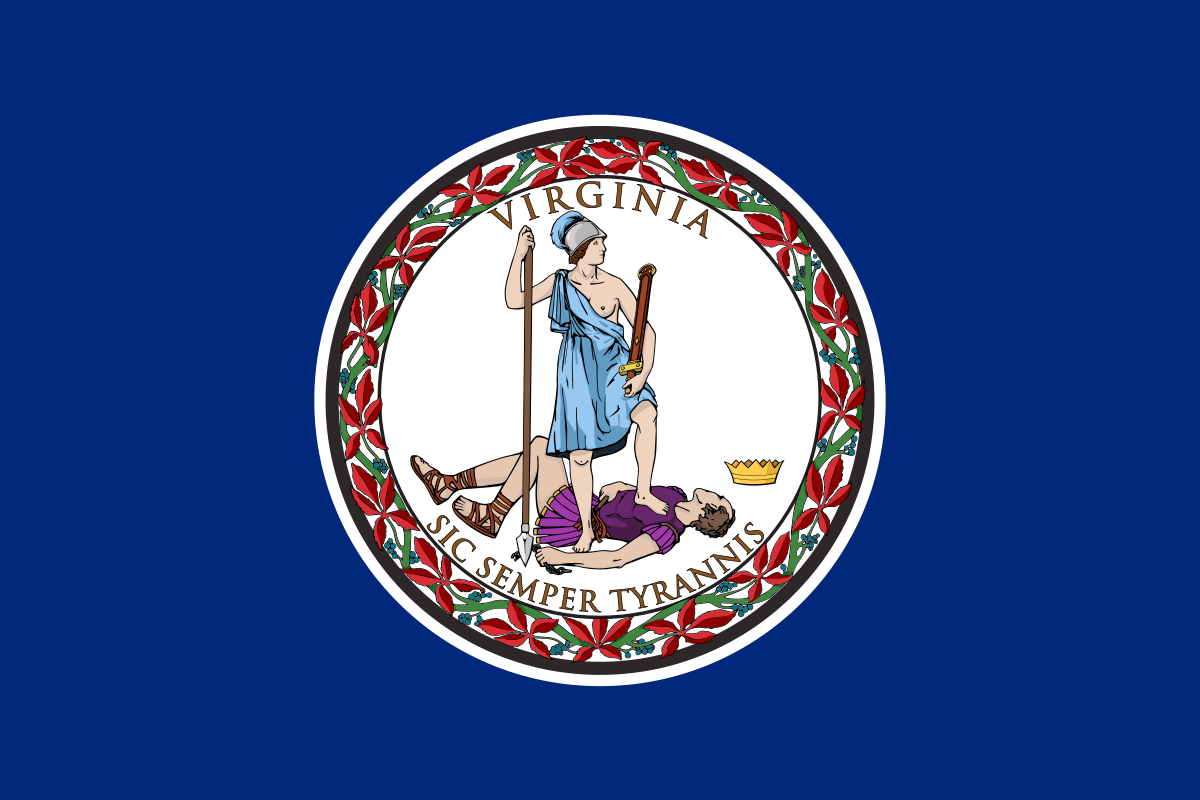
Anna Packwood is a senior honors student majoring in Communication at the University of Arkansas. Originally from Fayetteville, AR, Anna has been actively involved in several activities on campus, including the KXUA Radio Station, Honors College Ambassadors, and Lambda Pi Eta. After college, Anna hopes to pursue a graduate degree in digital communications.
Virginia plays a crucial role in the 2024 Presidential election with its 13 electoral votes. Historically, Virginia has been a swing state, but, in recent presidential elections, it has leaned left. Since 2008, the Democratic presidential candidate has collected the state’s electoral votes. Recent polling for the upcoming election also shows a likely win for Harris-Walz in Virginia. In this blog, I’ll be looking at factors like polling and demographics to make a prediction about Virginia’s 2024 outcome.
Recent polling in Virginia favors a Democratic victory for the state. For instance, 270towin reveals a substantial lead for Harris, echoing the state’s Democratic preference of previous elections. Harris leads with 50.0%, while Trump falls behind at just 41.3%. Almost all polls from 538 also show Harris defeating Trump by at least 5 percentage points. Based on 19 polls from The Hill, Harris has a 5 point lead.
Virginia’s diverse population traditionally vote Democratic, especially in Northern Virginia, Richmond, and Hampton Roads. The influence of younger, urban, and more racially diverse voters is palpable. However, suburban and rural parts of Virginia show strong Republican support, which would be the potential opportunity for the GOP to make inroads if they could appeal to moderate voters.
A key part of understanding Virginia’s political dynamics is its demographics. The state’s diverse population, driven by Asian American and African American communities, has contributed significantly to the Democratic advantage in recent years. Younger voters, who tend to be more liberal on social issues, are particularly concentrated in the northern part of the state. Additionally, Virginia also has a significant military presence, which tends to lean more conservative but varies by election depending on candidate policies on defense and veteran affairs.
Another demographic consideration is education level. Northern Virginia is home to many college-educated suburban voters, a group that has shifted toward the Democratic Party in recent years. This group cares deeply for and votes based on education, healthcare, and public safety. Topics which Harris-Walz has addressed more than Trump-Vance, so they may capture a more considerable share of this voting bloc.
Virginia’s swing potential means both candidates are investing heavily in political ads. These ads mainly focus on issues of inflation, crime, and healthcare, which are significant concerns among Virginia voters. Republicans have particularly increased spending on Pro-Trump and/or Anti-Harris political ads in the past three weeks. Democrats, on the other hand, have spent more gradually on political ads over the past eight weeks. In total, Democrats have spent $788,446 on Pro-Harris and Anti-Trump ads, while Republicans have spent $780,234.
In other Virgnia election news, two Republican election officials in Waynesboro filed a lawsuit against the state’s Department of Elections, demanding a hand count of ballots for Election Day. They claimed that machine counts prevent full transparency and violate Virginia’s constitutional requirement for public vote-counting. Their lawsuit follows a broader national trend among election skeptics pushing for hand-counting, despite studies showing that it can be more error-prone and costly. Governor Glenn Youngkin recently issued an executive order emphasizing machine security measures, including pre-election testing and daily voter list updates.
Prediction: Considering these factors—polling trends, demographics, and recent voting history—it appears that the Harris-Walz campaign has a significant edge in Virginia for the 2024 election. If the Harris campaign lost Virginia in this election, it would be likely mean that Trump was overperforming his polls throughout the country. A strong Republican turnout or a compelling appeal to moderate suburban voters could make it a close call, but with it being this late in the game, this is doubtful. With Virginia’s diverse and politically active population, the outcome may ultimately hinge on voter turnout and any last-minute shifts in key suburban districts.
